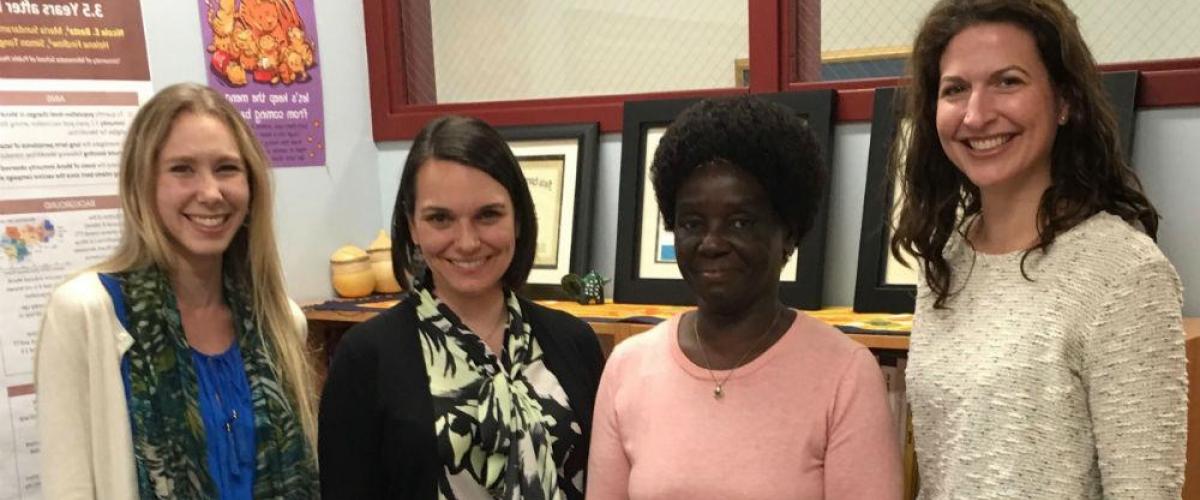Planting Seeds to Grow Global Collaborations: CGHSR grant recipients strive to unlock vaccination barriers
Team members Bonner, Basta, Banura, and Dawn Nederhoff gather in Minneapolis to advance research on vaccination barriers.
In 2016, Nicole Basta, University of Minnesota School of Public Health, together with co-investigators Cecily Banura, Makerere University; Shalini Kulasingam, University of Minnesota School of Public Health; and Hee Yun Lee, University of Minnesota School of Social Work were awarded a CGHSR Global Health Seed Grant to form a new research team to study the uptake of and barriers to human papillomavirus (HPV) vaccination among adolescent girls in rural Uganda.
The success of their partnership led the team, along with additional collaborators, to secure a Grand Challenges Exploratory Research Grant. This new funding supported adding School of Public Health PhD student Kim Bonner to the team to conduct additional research needed to improve HPV vaccine coverage in low-income, high-burden settings.
Fieldwork conducted throughout 2017 identified a key issue: current HPV vaccination programs delivered through school-based programs face significant challenges identifying and vaccinating girls not attending school. In January 2018, the journal Vaccine published a commentary led by Bonner and co-authored by Banura and Basta, which raises awareness about this underserved population. The commentary, entitled "HPV Vaccination Strategies Targeting Hard-to-Reach Populations: Out-of-school Girls in LMICs," discusses the issue that, given that most low and middle income countries are implementing school-based HPV vaccination programs, there remains a need to ensure that adolescents who are not attending school also have access to HPV vaccines. The team presents several evidence-based recommendations for approaches to addressing this issue and responding to WHO's call to ensure equitable access to the vaccine for all. Learn more about what lead author Kim Bonner has to say about the commentary.
The relationships built through this research also allowed Basta and Banura to apply for and receive a Bill & Melinda Gates Foundation Grand Challenges Explorations Grant to look at another barrier to immunization - access to transportation. “The Seed Grant in 2016 was my first experience working in Uganda,” Basta reports, “and that opportunity led to collaborations that will enable us to tackle many issues relevant to adolescent and child health”.
These achievements exemplify the Center for Global Health and Social Responsibility’s mission to catalyze global health research and collaboration. Drs. Basta, Banura, Kulasingham, and Lee’s efforts to establish and advance new scientific collaborations and opportunities for students to engage in research are an important contribution to shaping the University of Minnesota’s global health vision.
